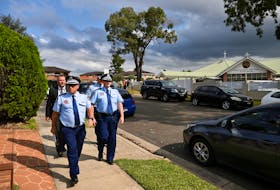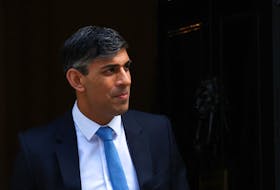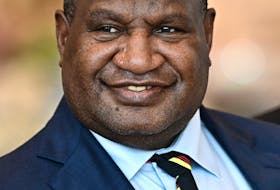Justin Trudeau’s Liberals have hung on to power for a second term, but they’ll form a minority government instead of enjoying a majority like the past four years.
For anyone who followed the campaign, the results of Monday’s federal election were no real surprise: A neck-and-neck race between the Liberals and the Conservatives, as well as a resurgence of the Bloc Quebecois in Quebec.
ELECTION 2019 RESULTS: Catch up on how the country voted riding by riding
The Liberals finished with 157 seats, 13 short of a majority. The Conservatives ended with 121, followed by the Bloc with 32 and the New Democrats with 24. The Green Party picked up three seats, while one independent was elected.
Both the Liberals and New Democrats suffered major losses in Quebec to the Bloc and the Conservatives, while the Conservatives saw the bulk of their support concentrated in Alberta and Saskatchewan, provinces where they saw a near sweep.
While there wasn’t a red sweep of Atlantic Canada — as there was in 2015 — the Liberals continued to enjoy strong support on the east coast.
The party lost only one seat to the Conservatives in Nova Scotia, despite losing almost half its incumbent candidates, as well as one to the NDP in Newfoundland and Labrador.
P.E.I. stayed all red, while the Liberals dropped three seats to the Tories and one to the Greens in New Brunswick.
That Green victory in the riding of Fredericton was a first for the party.
'Regional differences'
According to Howard Ramos, a political sociologist at Dalhousie University, Monday’s results paint a picture of a Canada that is extremely split across regional lines.
“There are regional differences from Atlantic Canada, Quebec, Ontario, Alberta, and B.C. So, for any leader going forward, it's going to be very important to recognize how regional the vote was and to begin to start creating more bridges than we saw with the tone of the campaign, which was a very negative campaign,” he said.
One route to that reconciliation, Ramos suggested, is addressing the core issues that expand across regions around affordability, the environment, and health care — all of which are top of mind for Atlantic Canadians.
Contrasted with the 2015 election, which many characterized as an anti-Harper vote, Don Desserud, a political science professor at the University of Prince Edward Island, said this election is about returning to the status quo for many parts of the country.
“This is not an election about big change. People are basically going back to old habits with a couple of interesting little exceptions, like Fredericton,” he said.
In 2015, when the Liberals swept Atlantic Canada, many predicted that a solidly red seat count, combined with having provincial Liberal governments across the region at the time, would win favour for a majority Liberal government.
But Desserud said many voters may feel like their support is taken for granted, something the Liberals will have to address in a minority scenario.
“When you have a majority, you basically can hold your MPs in line by saying, ‘Look, you know we have the power. You want to be part of this plan. You have to make sure you play the game.’ When you're in a minority situation, and every vote counts, things are fragile. You don't want people breaking ranks. You don't want people crossing the floor,” he said.
“That doesn’t mean Atlantic Canadian MPs have any more power than B.C. MPs, but it does mean that all the MPs will probably have a lot more clout in caucus meetings in dealing with cabinet ministers.”
'Power shift'
At the same time, Desserud said the Liberals will also be looking closely at places where they have lost support, like Quebec and Alberta, trying to figure out how to win voters over in those provinces.
“The power shift is definitely moving out West and I think that's been on for some time,” Desserud said.
Though they each only took one seat in Atlantic Canada, going forward, the region’s Green and NDP contingents may play a bigger role than their numbers might suggest.
For the Greens, the strong showing — 16 per cent in New Brunswick and 20 per cent in P.E. I. — is a good case for how strongly the region feels about climate change, Desserud suggested.
“The Liberals are going to have to start looking at why the Greens are doing well here,” he noted. “It’s possible they'll start to take the climate change file a little more seriously than they have.”
Meanwhile, Tom Urbaniak, a Cape Breton University political science professor, said all eyes will be on the NDP to see what kind of demands they make of the new government in propping up a minority.
He floated electoral reform and pharmacare as possible options for the New Democratics to leverage.
“Atlantic Canada's going to be in a good place in all of this because Atlantic Canada elected MPs from multiple parties, and even though the Liberals met their expectations for the campaign in Atlantic Canada, there were competitive races all over and that means that the region cannot be taken for granted.”









